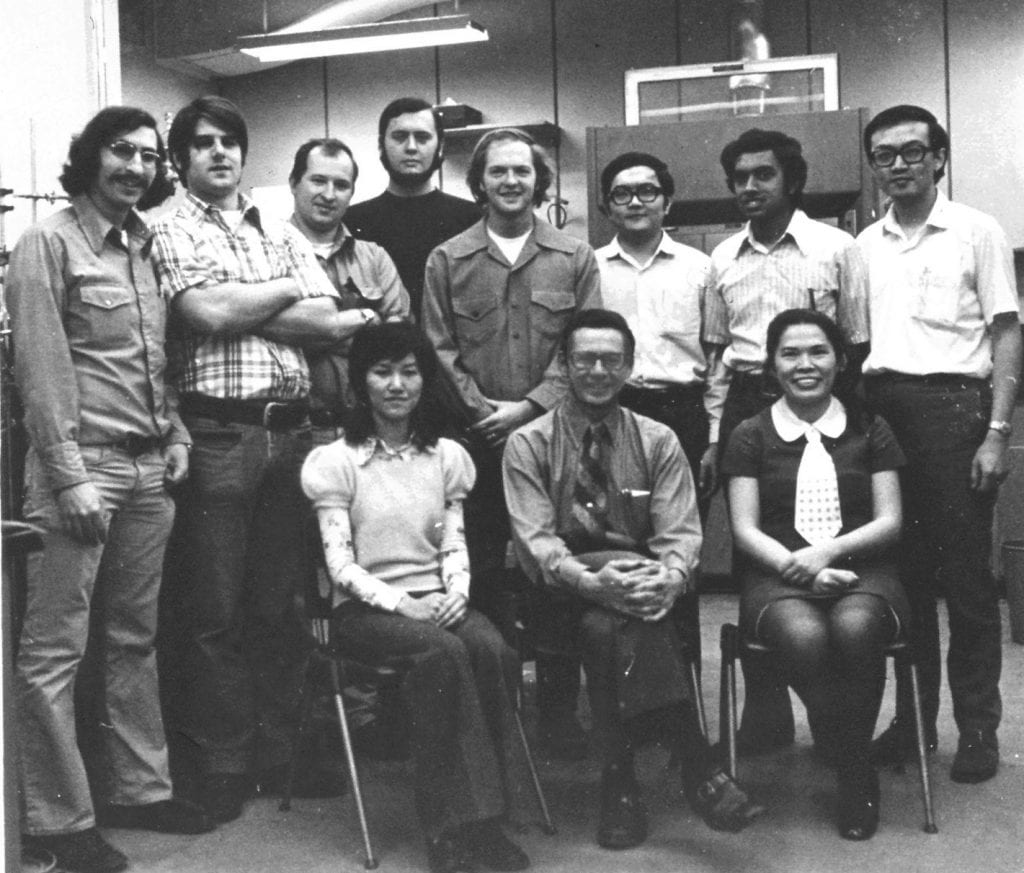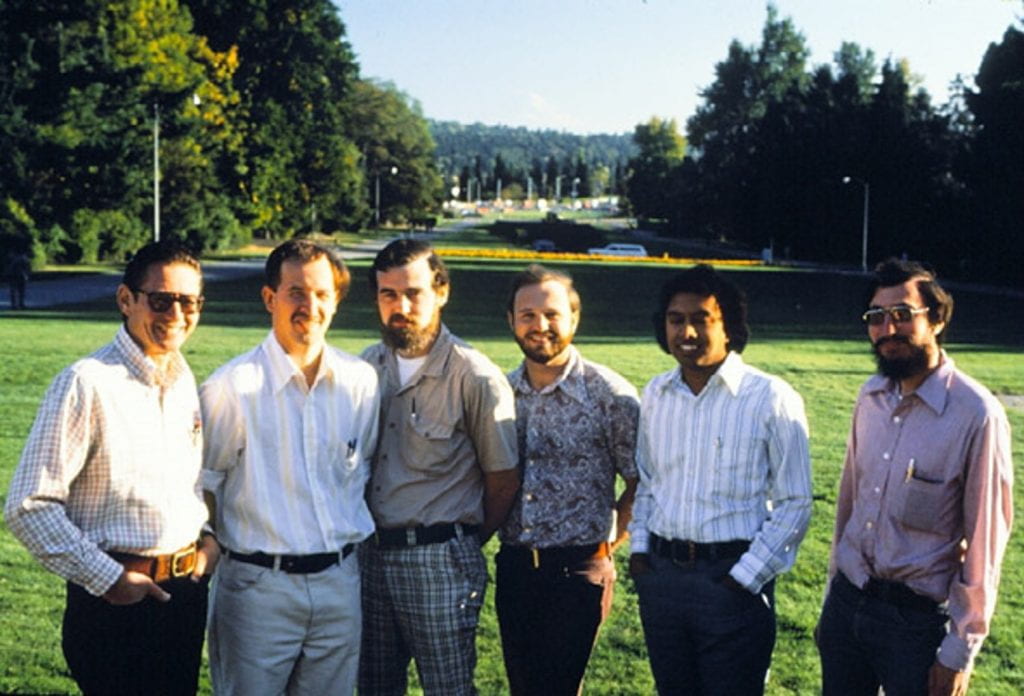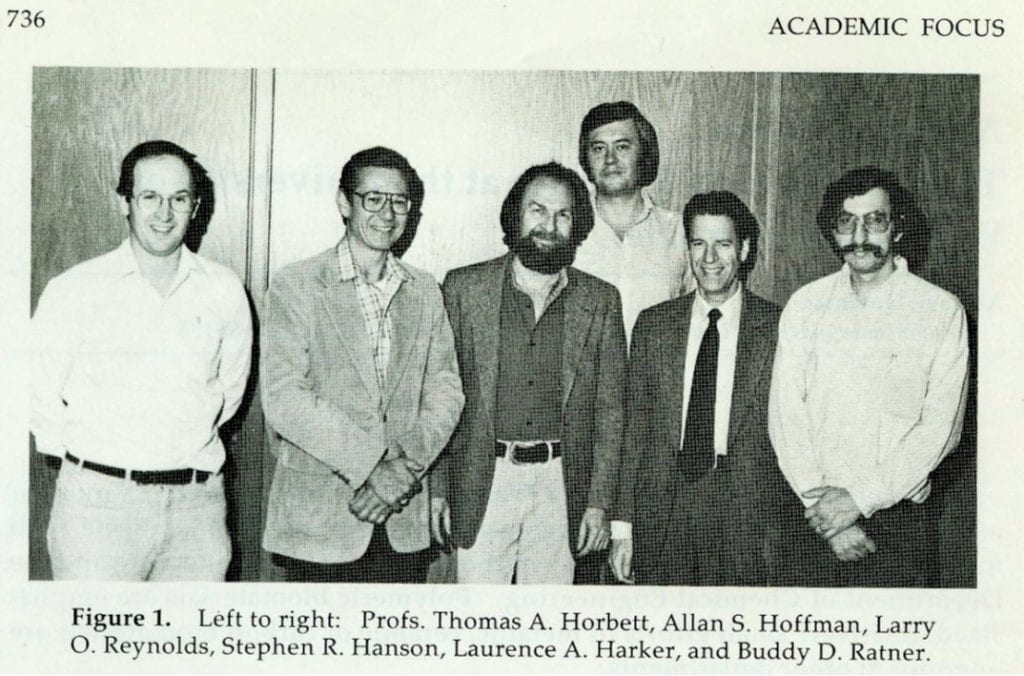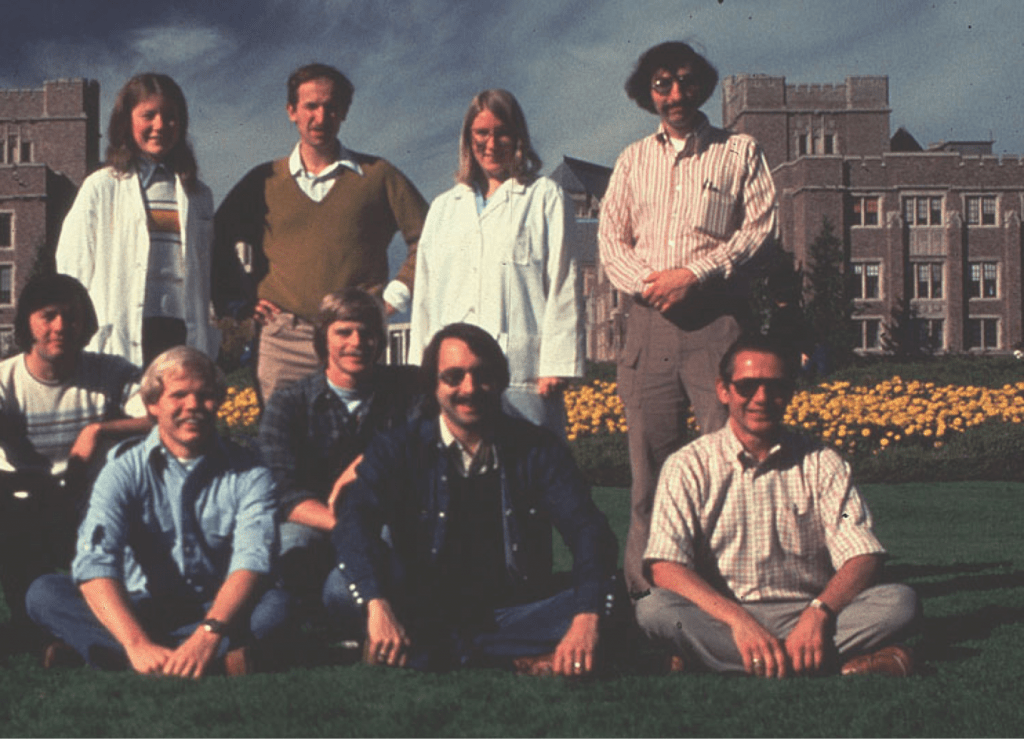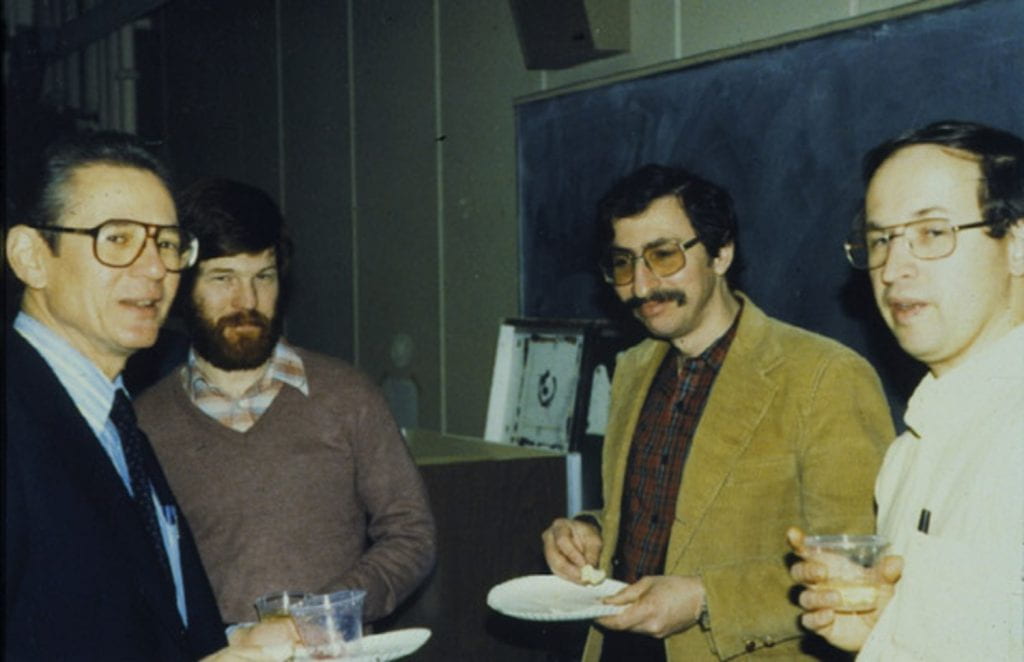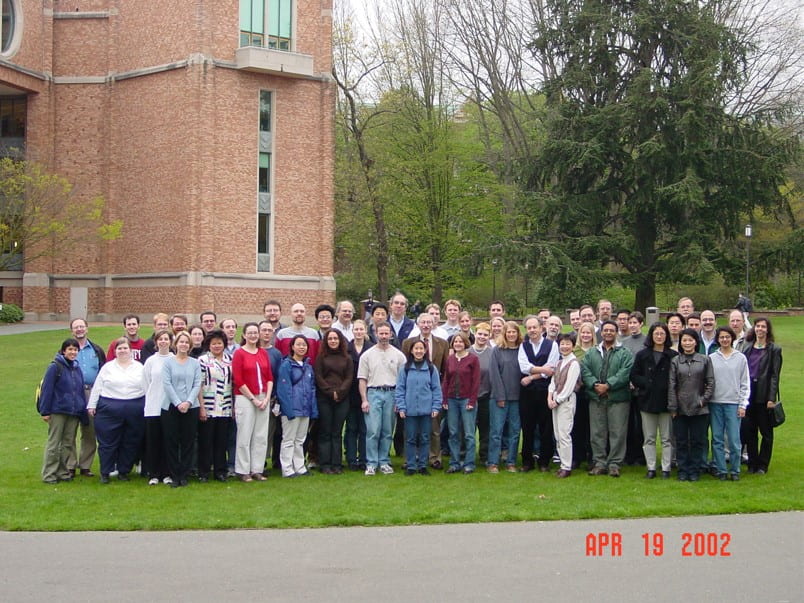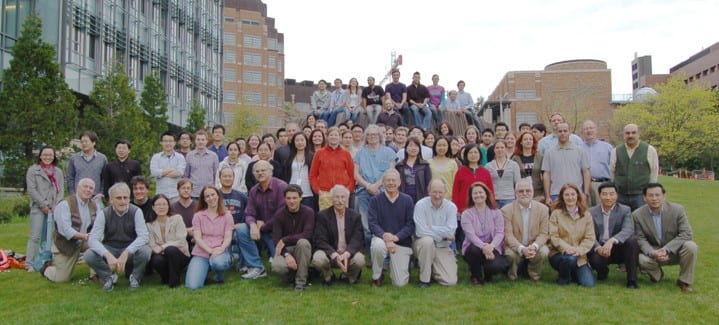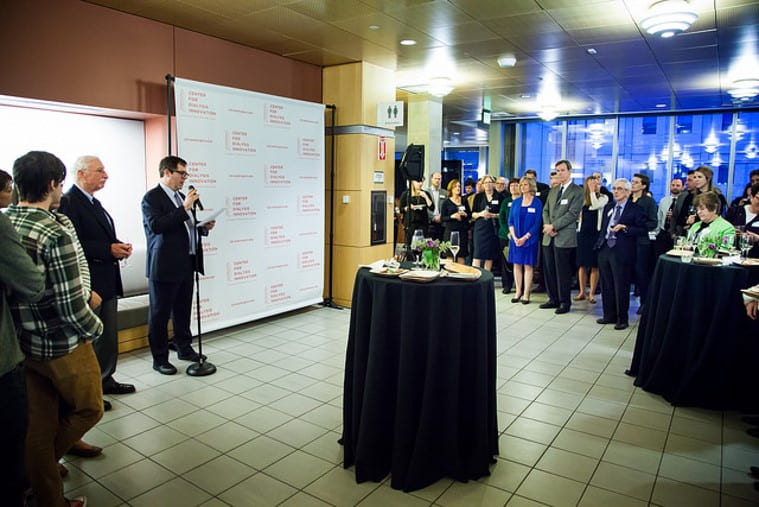A Short History of the Buddy Ratner-UW Biomaterials Journey
Dr. Allan Hoffman (seated center) arrived at the University of Washington in 1970 and established its first biomaterials research group in the Department of Chemical Engineering. Drs. Buddy Ratner (left) and Tom Horbett joined the Hoffman Group in 1972 as postdoctoral researchers with expertise in polymer chemistry and biochemistry, respectively.
Tom Horbett and Buddy Ratner are both advanced to Research Assistant Professor and launch their own research groups.
The Hoffman Group at Rainier Vista on the UW campus. (Hoffman, left; Ratner, right)
The Hoffman Group specializes in polymeric biomaterials and developing blood-compatible surfaces.
Buddy Ratner (top, right) with his research group in front of Drumheller Fountain on the UW campus.
The National ESCA and Surface Analysis Center for Biomedical Problems (NESAC/BIO) is founded in 1983 and funded by the NIH. NESAC/BIO specializes in state-of-the-art surface analysis techniques for applications in the biomedical sciences, including ESCA, ToF-SIMS, SEM, TEM, AFM, SFG, and QCM-D. Buddy Ratner served as the director from 1983-1996, followed by Dave Castner and Lara Gamble. (Photo: Allan Hoffman, Brian McElroy, Buddy Ratner, Tom Horbett)
University of Washington Engineered Biomaterials, (UWEB) was founded as a National Science Foundation Engineering Research Center in September 1996 under the directorship of Buddy Ratner. It continues to this day as a university and industry consortium partnership.
The entire UWEB Research Center Team gathers for a photo on the HUB lawn outside Suzzallo-Allen Library.
UW Bioengineering was founded as the UW Center for Bioengineering by Dr. Robert Rushmer in 1967 and was scattered across several UW departments. In 2006, the Department of Bioengineering, including the Buddy Ratner biomaterials lab, moves into the new William H. Foege Building.
All biomaterials research groups at UW gather on the lawn outside Foege Hall.
The Center for Dialysis Innovation (CDI) is founded in November 2016 and receives a 5-year grant from nonprofit Northwest Kidney Centers in March 2017. The CDI aims to use biomaterials and bioengineering technologies to transform dialysis care and is co-directed by Jonathan Himmelfarb (professor of medicine and director of Kidney Research Institute) and Buddy Ratner.
